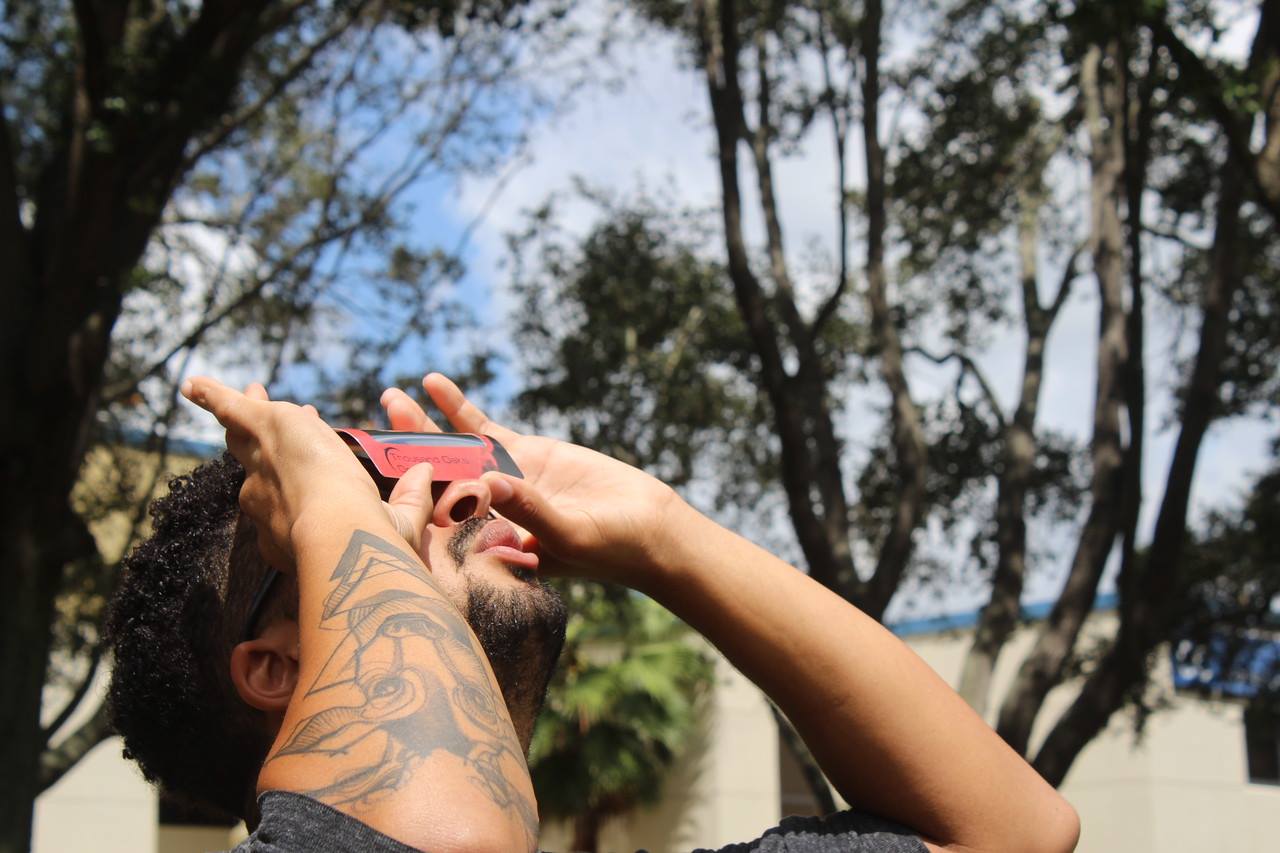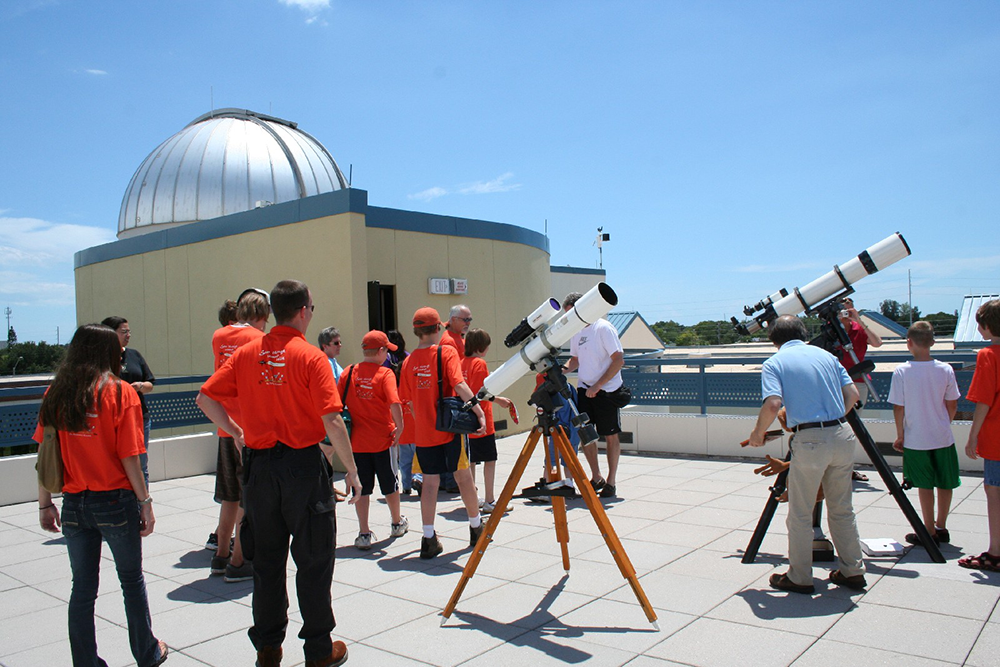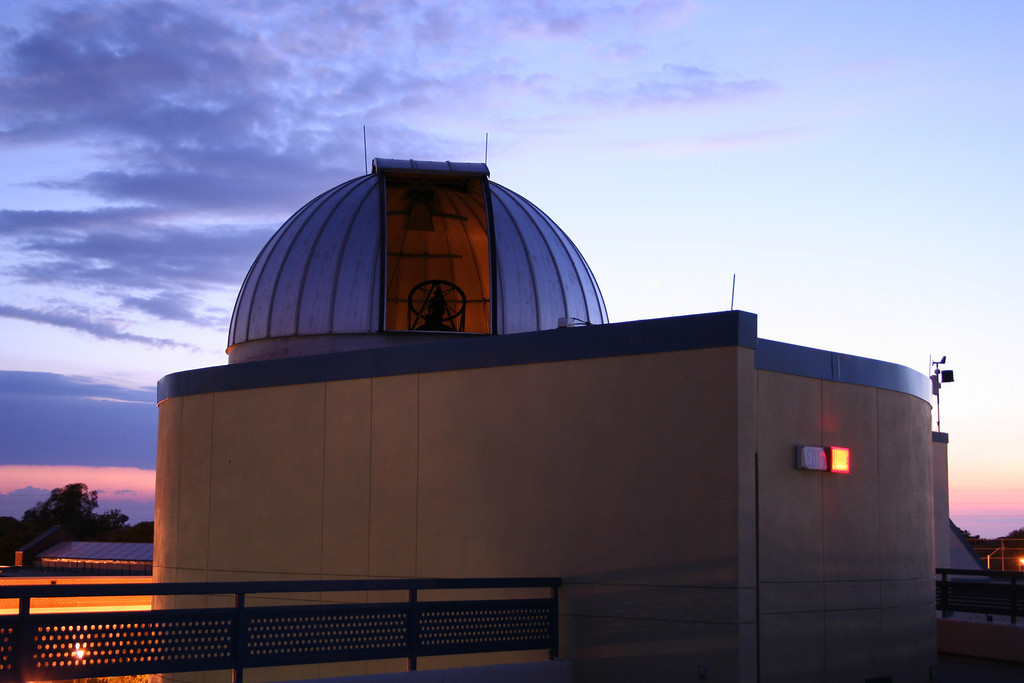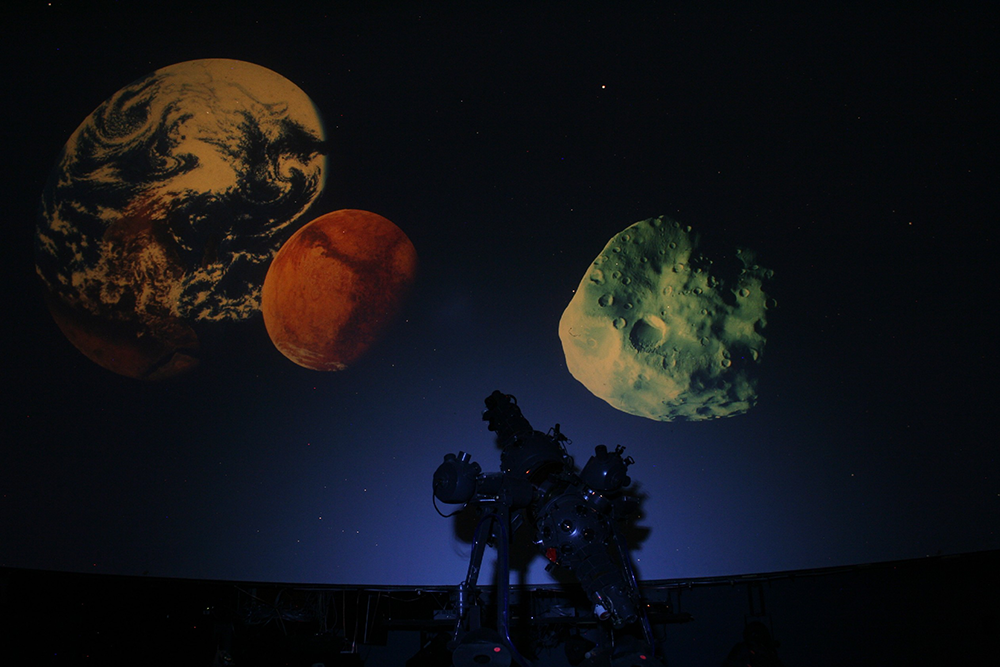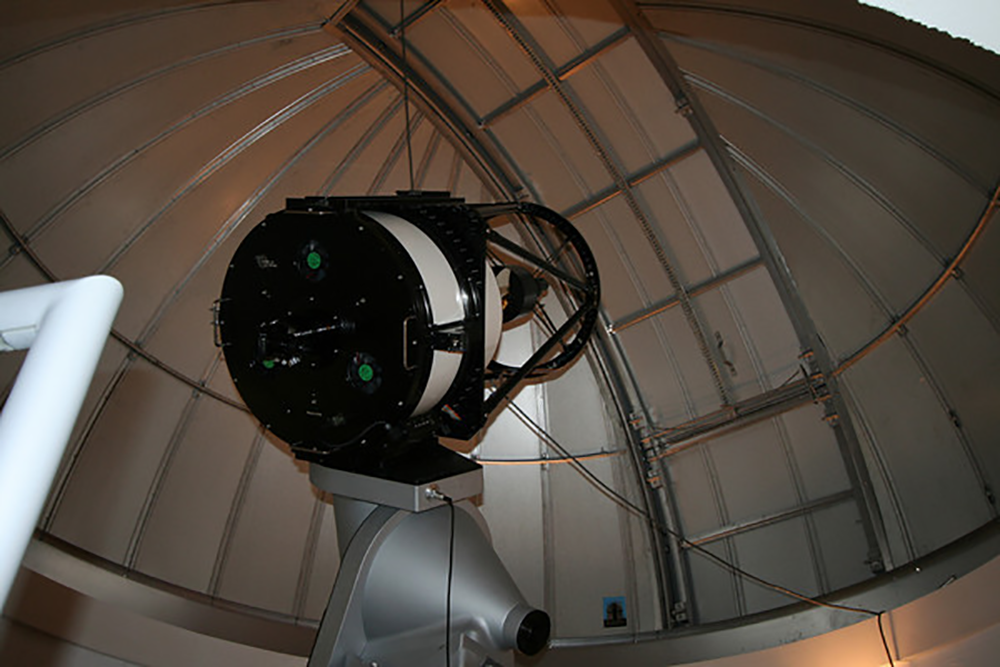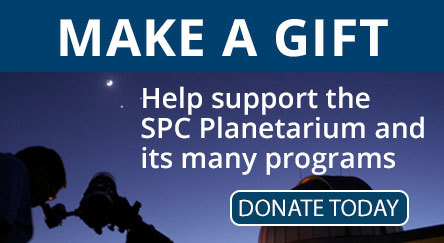Experience the Planetarium to learn about astronomy
FREE PLANETARIUM SHOWS
Explore the stars without trekking far from home - for a price that's out of this world: Free! During the summer session, the planetarium offers free public shows on Wednesday and Thursday evenings. Shows are hosted by resident astronomer Dr. Craig Joseph and feature live narration with images displayed by computer-controlled projectors.
The planetarium comfortably seats 46, and admission is on a walk-in basis (first-come, first-served). No reservations are required. Planetarium shows last approximately 45 minutes, and no one can be admitted after the show begins. Children are welcome but must be at least 5 or older.
Showtimes: Wednesday and Thursdays evenings at 7 pm
Note: During summer session, St. Petersburg College will be changing to a 4-day work week, and the Gibbs campus will be closed on Fridays. Also, building adjustments have been made across the campus, and the science building will be closing at 9:00 pm. Consequently, our usual Wednesday evening telescope viewing will not be available for the remainder of the summer.
CURRENT SCHEDULE
The Stars of Spring May 21, 22, 28, 29; June 4, 5
May 21, 22, 28, 29; June 4, 5
Springtime brings the Big Dipper back to the evening sky, along with the popular zodiac constellation Leo the Lion. But the main focus of the spring sky cannot be seen with your eyes alone - a myriad of distant galaxies. Learn about the work of Edwin Hubble and his discovery of the true nature of the “spiral nebulae”.
The Stars of Summer June 11, 12, 18, 23, 26; July 2, 3, 9, 10, 16, 17, 23
June 11, 12, 18, 23, 26; July 2, 3, 9, 10, 16, 17, 23
As the last of the spring constellations descend in the west, the Northern Cross and the summer triangle shine prominently in east. Among the summer stars, the menacing tail of the scorpion dominates the southern sky. But the theme of the summer sky is stellar birth and stellar death – there are examples of both that are visible in small telescopes. Learn about the life cycles of the stars, and how they ultimately meet their end. Note: The planetarium will be closed June 19 for the Juneteenth holiday.
Following the July 23 show, the planetarium will be closed until fall classes begin the week of August 18.
ROOFTOP OBSERVATORY
The St. Petersburg/Gibbs Campus is also home to a rooftop observatory, featuring a 20-inch reflecting telescope that is open to students and the public after Wednesday evening planetarium shows. Additional portable telescopes are available on our spacious third floor observation deck. Special telescopes equipped with solar filters allow daytime visitors to safely view sunspots, prominences and other solar activity.
PLANETARIUM LOCATION
The Planetarium is located on the second floor of the Natural Science Building (SC 205) on the St. Petersburg/Gibbs Campus located on 69th Street North at 5th Avenue. Free parking is available for the celestial shows.
SCHEDULE YOUR GROUP EVENT
Clubs, school groups, and other community organizations can reserve the planetarium for free special programs – morning, afternoon or evening (for evening shows, only Mondays and Tuesdays are available). For group reservations:


